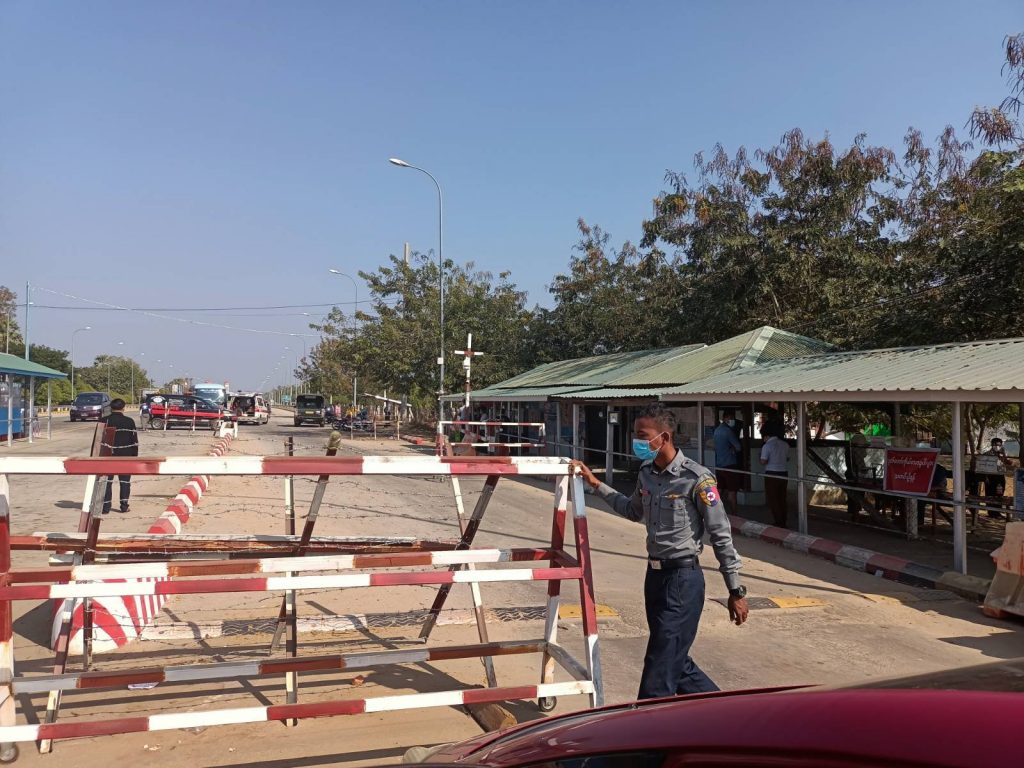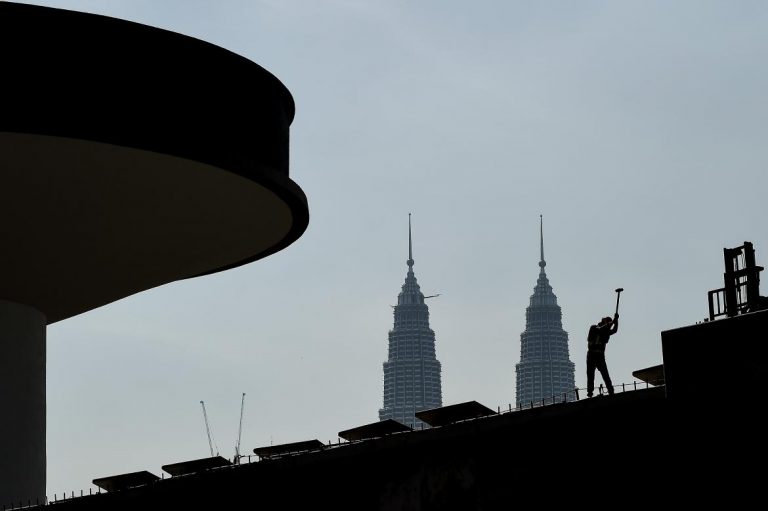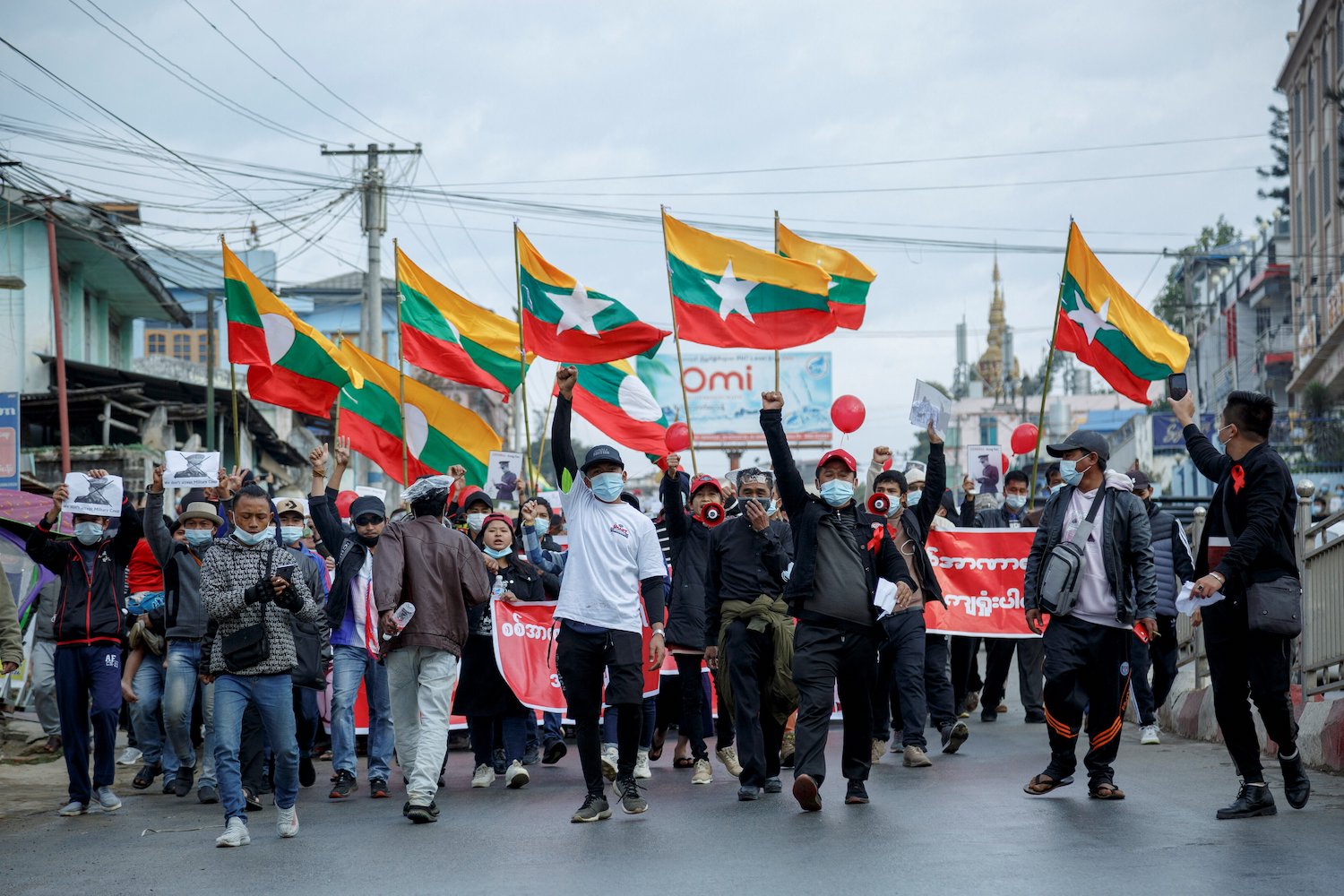This is not a good time to travel without a Citizenship Scrutiny Card. Those who do are advised to carry extra cash to pay off soldiers and police at checkpoints… and to scrub their phones before their journey.
By FRONTIER
When my purse was stolen in Yangon last December, I lost many of my most important documents: my Citizenship Scrutiny Card, driver’s licence, student card and ATM cards.
I put off replacing my CSC (often referred to as a National Registration Card, or NRC) because it would require a trip to my hometown, the Mon State capital, Mawlamyine. But after the February 1 coup d’etat, it felt dangerous to not have a national ID card. I also realised that I needed a CSC so I could replace the other lost cards.
Up until four months ago, this wouldn’t have been a problem. To get to Mawlamyine, I would have just told the express bus line my CSC number – that would have been enough. There were no checkpoints or inspections at which security forces asked to see the real thing.
Unfortunately, travel in Myanmar has become more difficult since the coup. There are now many checkpoints, and sometimes soldiers and police even search passengers’ luggage and mobile phones. If they find anything suspicious, such as indications of support for protests or the Civil Disobedience Movement, they don’t hesitate to make an arrest.
I was anxious about the trip, and for good reason – when you arrive at a checkpoint, the first document they ask for is your CSC. In the past, if we needed to travel without our ID, we could take a letter of recommendation from our ward administration office or the nearest police station. However, the administrator of my ward had joined the CDM and the ward administration office was the target of a bombing in early April. I didn’t want to go to the police station because I was worried about being arrested.
I didn’t have any good options. In the end, I decided to risk it and travel with a photocopy of my CSC.
I departed Yangon for Mawlamyine on an express bus and the first checkpoint was at the entrance to Bago Region. We didn’t have to disembark; heavily armed police and soldiers boarded the bus.
I showed the police a photocopy of my CSC, and explained that the original had been lost and I was travelling to Mawlamyine to be issued with a replacement.
The police warned me that I could be arrested for travelling without an ID card or a recommendation letter, but after checking my luggage, they allowed me to continue my journey. Although the police at the second and third checkpoints were intimidating and threatening, they also let me go.
At the final checkpoint we had to disembark and present our CSCs. When I showed the photocopy of my CSC, a soldier said I could be fined for travelling without the original. They started asking lots of questions: Where was my CSC? Why hadn’t I brought it? What was I planning to do in Mawlamyine? The soldier said that their questioning might take so long that my bus would have to leave me behind. Wouldn’t it be better, he said, to pay an “understanding fee” instead? I gave him K10,000 and quickly reboarded the bus, eventually arriving at my destination.
After the nerve-wracking journey, I was pleasantly surprised at how easy it was to replace my CSC in Mawlamyine.
At the Immigration Department office, I handed over the necessary documents, paid what was euphemistically described as a “service fee” of K50,000, and collected a new CSC the next day. The official fee for replacing a CSC is around K2,000.
To make my previous card in 2014, I had to spend two days at the Immigration Department and then wait another 10 days before I could collect the card. That time, though, they didn’t ask for any extra money.
Security during the return journey to Yangon was noticeably tighter, apparently because soldiers and police were trying to intercept people returning to Yangon from training in Karen National Union-controlled territory. At the first checkpoint, about three hours from Mawlamyine, police and soldiers inspected the luggage of every passenger on the express bus, as well as checking their ID cards.
Any passenger with a CSC that was not issued in Mon State was closely questioned about the purpose of their journey.
At the next checkpoint, named Mokepalin, on the Mon State side of the Sittaung River that divides Mon State and Bago Region, a boy seated in front of me was taken off the bus. I heard a soldier say the boy’s CSC was issued in Ayeyarwady Region and he needed to be checked more closely.
When the bus pulled away, I noticed about 60 young men sitting at the checkpoint, who seemed to have been detained for further questioning.
There were even a few people in handcuffs, but when I asked a soldier who they were, he shouted at me not to ask questions or I would be arrested. I kept my mouth shut.
At the third checkpoint, I encountered a new problem. I no longer had to explain why I was travelling with a photocopy of my ID card – I now had a brand new one. But now a policeman wanted to know why my CSC was so new. When I explained, he responded by asking for “tea money”. I gave him K10,000.
At the fourth checkpoint, near the town of Payagyi in Bago Region, both our ID cards and mobile phones were checked. I didn’t have a problem because I had already deleted social media posts, data and contacts from my phone, but some of the other passengers hadn’t been so smart.
When the police found social media posts or images about the protest movement on their phones, they were arrested or threatened with arrest. Three people paid bribes to avoid being detained: one passenger had to pay K50,000 and the others K100,000 each. We speculated as to why the size of the bribe varied; was it because of the nature of their social media posts, or just how much money the police figured they might be carrying?
The woman sitting next to me was a frequent traveller between Mawlamyine and Yangon, and I asked her if our experience had been unusual.
“Before, we could travel everywhere without having to worry too much,” she responded. “Now it feels like we are totally in the darkness … they are bullying the people with their weapons.”







